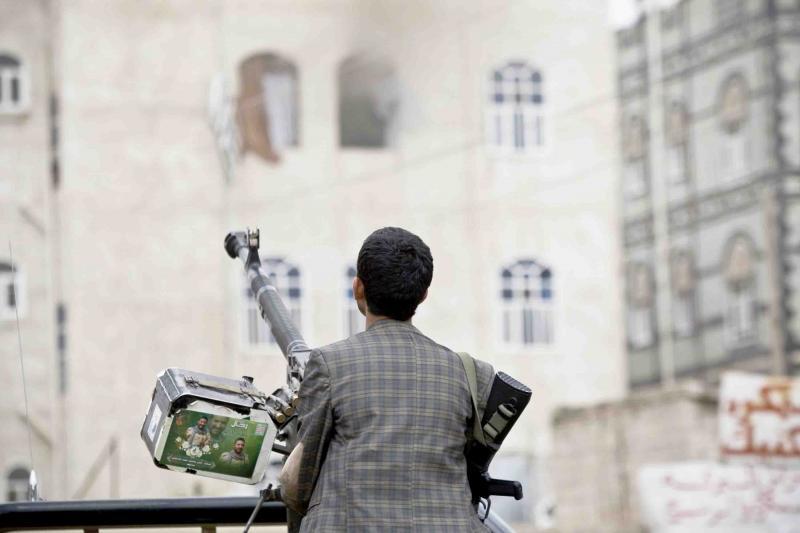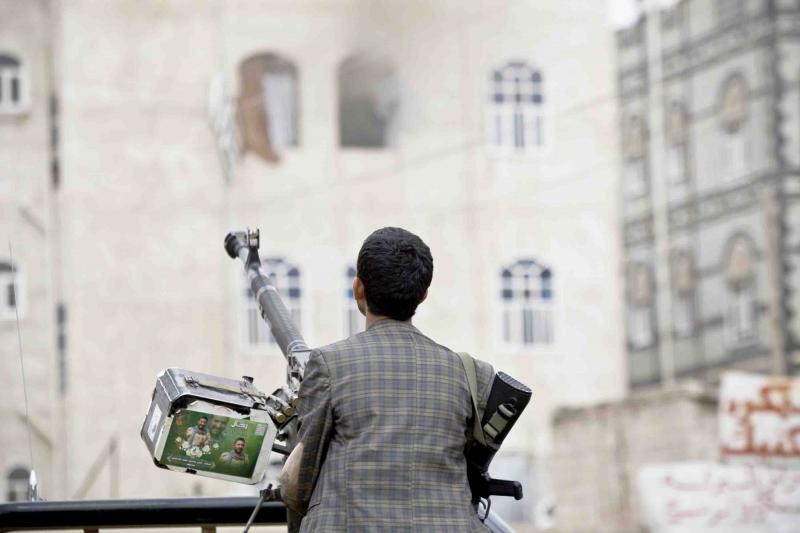Yemen’s vicious circle must be broken
Above all else, we must welcome any positive news coming from Yemen. A potential humanitarian tragedy, greater than the one that the Yemenis have been experiencing for many years, must be avoided. The Yemenis have suffered enough since 2011, when the Muslim Brotherhood thought that it could highjack the popular uprising against the existing regime and use it to seize power.
The Brotherhood failed to take two things into consideration. The first was the fact that the regime of former Yemeni President Ali Abdullah Saleh, who was assassinated by the Houthis about a year ago, was not an easy morsel to swallow, and the second was that the Houthis and behind them Iran were waiting in the wings for the right opportunity to lay their claws on Sana’a. And that’s exactly what happened on September 21, 2014.
Today, the international community, led by the United States and Britain, is pressing for a near truce in Hodeidah. Then, we have the Houthis announcing that they will stop firing rockets and sending drones “towards Saudi Arabia and the UAE.”
Can we therefore say we have the right conditions for a political solution in Yemen?
Logic and recent experience say that halting the attack on the strategic port of Hodeidah cannot be compared to halting the missile attacks on Saudi Arabia. Let’s not even talk about comparing it to halting missile attacks on the UAE because it is doubtful that these missiles can reach that far in the first place.
What is certain is that there is a need for the Houthis to come to their senses. There is also a need to restructure the camp of the legitimate government so that it can be up to the importance of the event and able to deal with any political solution that may be submitted by the UN Secretary-General’s envoy for Yemen, Martin Griffiths, who unfortunately does not seem to know much about Yemen or about the ambitions of the Houthis and of those who hide behind them.
Experience has shown that it is hopeless to bet on the Houthis coming to their senses. All one has to do to come to that conclusion is examine the speeches given by their leader, Abdelmalik al-Houthi, since the takeover of Sana’a. They contain nothing substantial and are just manoeuvres to buy time. The Houthis have nothing to offer Yemenis besides illusions, empty slogans and pompous rhetoric that cannot buy medicine, feed the hungry or build a school or a hospital. The frightening thing is that the Houthis are completely unconcerned with the precarious situation of the average Yemeni citizen.
For all practical purposes, however, there is no escaping from including the Houthis in any political process aimed at reaching some sort of solution at some stage. But the Houthis’ actions suggest they want to impose a formula that will eventually lead to the establishment of a state of their own with Sana’a as its capital.
How can we possibly allow the people of Sana’a and their centuries-old cultural heritage to fall to the mercy of marauding cave dwellers that know only how to chant “Death to America, Death to Israel, Damn the Jews, Victory for Islam”?
The UN envoy for Yemen will be making a major mistake if he continues to believe that a political solution can be found with the existing balance of power. By saying this, we’re not suggesting resuming fighting in Hodeidah; on the contrary, it is an attempt to avoid further fighting. At the end of the day, if the Houthis are allowed to stay in Hodeidah, it will be the shortest way to reach a political impasse.
To put it differently, if the negotiations scheduled to take place in Stockholm are limited to the Houthis and the “legitimate” government, there will be no positive results. It is imperative that the vicious circle in Yemen be broken. This can only be achieved by removing the Houthis from Hodeidah and by restructuring the “legitimacy” camp by expanding its base. It does not make sense not to include all the forces involved in confronting the Houthis in the “legitimacy” camp.
If these two conditions are not met, the Houthis will continue to exercise their favourite hobby: buying time in order to create new conditions on the ground. It was easy for them, for example, to assassinate Saleh because they really don’t care about the lives and future of Yemeni youth. For them, a young Yemeni is just a martyrdom project. He doesn’t need to go to school or university. All he needs is to learn how to chant hollow slogans and fight for the victory of Iran’s expansionist project in the region.
Is this what the UN envoy and the United States and Britain behind him really want to happen in Yemen?
Perhaps he really wants to find a balanced political solution that will revive hope in Yemen. Again, the point is not to eliminate the Houthis. In fact, no one can eliminate anyone in Yemen. What is more desirable than ever is finding a way to include the largest number of political forces in the north, south and centre in any national dialogue or negotiations for a political solution.
The only constant in Yemen is that there can be no return to the old formula — that of one Yemen controlled by Sana’a, or the centre as it was called. The old Yemen we’re familiar with is now gone. Perhaps the right formula for a new Yemen is that of a federation or confederation. But there is no hope of reaching such a formula if the vicious circle in not broken.
Khairallah Khairallah is a Lebanese writer.
This article was originally published in The Arab Weekly.







